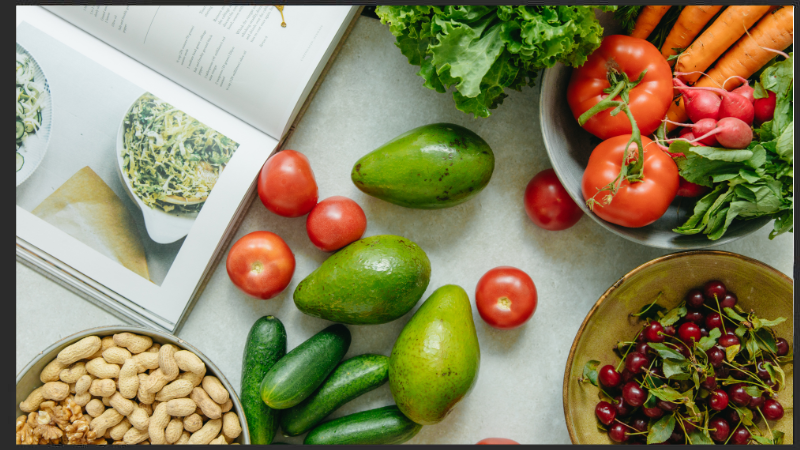Summer Food Guilt

Guilt relates to that feeling of having “done wrong” or “failed”. Guilt steals the enjoyment of eating when the purpose was for enjoyment anyway!
It is normalized to think of guilt as a motivator to keep us accountable and self-disciplined, but this discipline is not a limitless resource. We use self-discipline all day. We use it to wake up for work, answer emails, and do chores. It’s what tells us “you should do that” and is defined as "obedience to rules".
The thing is - We have enough “I should’s”, obligations, and subsequent guilt, leading to depression and anxiety. We need more areas that spark genuine creativity and joy - the "I want to's"
Here’s how to remove the guilt and “I should” mentality when it comes to nutrition and food guilt
Step 1: Define the end goal and your why
Your nutrition and health behaviours are defined by:
- Your idea of health
- Your desired outcome for your health
- Your belief on why that outcome will benefit you on a daily basis.
When we are moving away from guilt, it's important for you to define the above aspects and understand why you are using guilt in the first place!
E.g. My idea of health is having a balance of physical, social, and emotional health. I want to ingest foods that are healthy, build social connections with my family, and manage my stress. This will help me be happier because I will have multiple ways to cope with negative circumstances.
Step 2: Build Self-confidence with Small Goals
Once you define your end goal and why, then you need a plan for how to achieve it.
This will be dependent on your belief or confidence that you can achieve your goal.
To increase your confidence, break down bigger goals into small achievable tasks or behaviours. Particularly tasks you can complete TODAY.
E.g. "I will prepare a super yummy breakfast tonight that I will be excited to eat tomorrow instead of picking up food on the way to work.
By working with a dietitian, you can explore ways to break down your larger health goals in the most efficient ways.
Step 3: Remove the Morality and Swap it for Awareness
Once you start defining your smaller health goals, it's easy to view your progress as “good” or “bad” depending on if you complete the task. This can lead to guilt.
Compassionate awareness starts with removing the “good” and “bad” labels associated with food. These labels are very subjective as food can not be grouped in black-and-white categories when its impact on our health relies on numerous factors.
Food and eating behaviours are neutral. Instead of reviewing if you have been “good” or “bad” today, use awareness for future learning.
E.g. "I noticed when I delayed my breakfast and ignored my hunger, I had more cravings for sweet foods and ended up buying iced coffee."
Step 4: Stay Consistent using Your Values, not Discipline
What if we didn’t use our finite resource of self-discipline for nutrition?
What if we linked the commitment to our small health goals with instant satisfaction tied to our values? Here are some examples:
Value: Reducing financial stress, building social connections, improving nutrition
“I will reduce my take-out spending to 1 meal or beverage per day because by reducing it I will save more money, improve my cooking skills, and have more nutritious meals with my family at home.
Value: Reducing physical symptoms (stomach pain, heartburn, lethargy)
“I got a salad with my burger because a burger and fries leave me tired and lethargic after eating it”
Value: Quality time
“I ate brought a quick snack to eat before going to a family gathering so that I wasn’t irritable and could enjoy my time with my family in case dinner was delayed”
Though discipline offers consistency, it can take away from life satisfaction which is the whole reason you are aiming to improve your health!
Step 5: Pull more sensory satisfaction
When food is no longer seasoned with guilt, we have more room for rational thought and enjoyment. You can pay attention to how foods taste and make you feel rather than how they will be tracked on the newest calorie-tracking app.
While eating, ask “Why did I want this?”
Define what about your meal is so amazing and pay attention to those characteristics. We often eat without pulling any satisfaction from the meal because we are distracted. Eating is an underutilized opportunity for enjoyment. Take the time to appreciate your favourite foods, especially the ones you use to cope with negative emotions.
Step 6: Ditch compulsive compensation
Don’t skip meals, beat yourself up with exercise, or deprive yourself afterward. Planning to compensate paradoxically encourages more eating. Instead, focus back on the previous step and set your intention to feel better when you’re done eating than you did when you started.
Pausing to breathe and listen to how your body is feeling calms the nervous system to reduce impulsive eating patterns before they occur, and if they do, compassionate awareness allows us to learn from the situation rather than compensate after.
Calgary’s Choice For Optimal Wellness
Every person’s journey to complete wellness is unique. Achieving optimal health may be easier than you thought, or it might be harder than you expected. But when you partner with the team at The Clinic YYC, you are guaranteed access to some of Calgary’s best wellness professionals and to effective and transformative traditional and advanced treatment modalities to support your goals for physical well-being.
Connect with The Clinic YYC by filling out our contact form, calling us at 1-587-353-5933, faxing us at 1-587-353-5471 or visiting us! We are located in the ECT Tower on the main floor by the north entrance.


